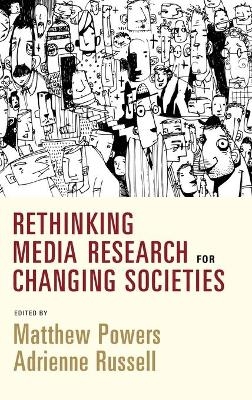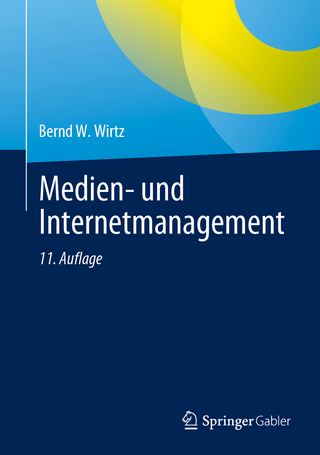
Rethinking Media Research for Changing Societies
Cambridge University Press (Verlag)
978-1-108-84051-4 (ISBN)
This agenda-setting volume brings together leading scholars of media and public life to grapple with how media research can make sense of the massive changes rocking politics and the media world. Each author identifies a 'most pressing' question for scholars working at the intersection of journalism, politics, advocacy, and technology. The authors then suggest different research approaches designed to highlight real-world stakes and offer a path toward responsive, productive action. Chapters explore our 'datafied' lives, journalism's deep responsibilities and daunting challenges, media's inclusions (and non-inclusions), the riddle of digital engagement, and the obligations scholars must attempt to meet in an era of networked information. The result is a rich forum that addresses how media transformations carry serious implications for public life. Original, provocative, and generative, this book is international in its orientation and makes a compelling case for public scholarship.
Matthew Powers is Associate Professor of Communication and Associate Director of the Center for Communication and Civic Engagement at the University of Washington. He is the author of NGOs as Newsmakers (2018). Currently, he is working with Sandra Vera-Zambrano on a book entitled What Journalists Are For. Adrienne Russell is Mary Laird Wood Professor and Associate Director of the Center for Communication and Civic Engagement at the University of Washington. She is the author of Networked (2011) and Journalism as Activism (2016), and co-editor of Journalism and the NSA Revelations (2017) and International Blogging: Identity, Politics and Networked Publics (2009).
1. Introduction; Matthew Powers and Adrienne Russell; Part I. Living in a Datafied World; 2. The corporate reconfiguration of the social world Nick Couldry; 3. Public communication in a promotional culture Melissa Aronczyk; Part II. Journalism in Times of Change; 4. Press freedom and its context Daniel Hallin; 5. What are journalists for today? Matthew Powers and Sandra Vera-Zambrano; 6. Noise and the values of news Stephanie Craft and Morten Stinus Kristensen; Part III. Media and Problems of Inclusion; 7. Journalism and inclusion Rodney Benson; 8. Afrotechtopolis: how computing technology maintains racial order Charlton McIlwain; 9. Exploiting subalternity in the name of counter-hegemonic communication: Turkey's global media outreach initiatives Bilge Yesil; Part IV. Engagement with and through Media; 10. Constructive engagement across deep divides – what it entails and how it changes our role as communication scholars Hartmut Wessler; 11. Fostering engagement in an era of dissipating publics Lynn Schofield Clark; Part V. The Role of Scholars; 12. What is communication research for? Wrestling with the relevance of what we do Seth C. Lewis; 13. Communication as translation: notes toward a new conceptualization of communication Guobin Yang; 14. What are we fighting for? Academia or the humility of knowledge Nabil Echchaibi; Epilogue: what media for what public life? Silvio Waisbord.
| Erscheinungsdatum | 13.08.2020 |
|---|---|
| Reihe/Serie | Communication, Society and Politics |
| Zusatzinfo | Worked examples or Exercises |
| Verlagsort | Cambridge |
| Sprache | englisch |
| Maße | 230 x 160 mm |
| Gewicht | 500 g |
| Themenwelt | Sozialwissenschaften ► Kommunikation / Medien ► Journalistik |
| Sozialwissenschaften ► Politik / Verwaltung ► Vergleichende Politikwissenschaften | |
| ISBN-10 | 1-108-84051-5 / 1108840515 |
| ISBN-13 | 978-1-108-84051-4 / 9781108840514 |
| Zustand | Neuware |
| Haben Sie eine Frage zum Produkt? |
aus dem Bereich


